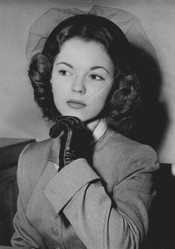In North Carolina, a health blogger is facing the possibility of being sued for writing and publishing his story about how he got rid of diabetes following the paleo diet. Steve Cooksey drew attention to himself when attending a talk hosted by an official dietician. He questioned her theories and handed out his business card at HER event and three days later, he had a call from The North Carolina Board of Dietetics/Nutrition telling him that his website was being investigated. The board explained that he was giving health advice without suitable credentials.
Does free speech not give Steve the right to tell people suffering from diabetes how to overcome it?






 T-fal Actifry Deep Fryeron 06/02/2012
T-fal Actifry Deep Fryeron 06/02/2012
 Birthday in a boxon 05/22/2012
Birthday in a boxon 05/22/2012
 InsectLore Butterfly Garden - An educational breakthroughon 05/19/2012
InsectLore Butterfly Garden - An educational breakthroughon 05/19/2012
 Inspirational Home Decor with Wall Decals and Wall Arton 05/01/2012
Inspirational Home Decor with Wall Decals and Wall Arton 05/01/2012


Comments
@ sheila Marie It really can be pretty confusing trying to navigate the line between helping people find a solution apart from conventional science and just promoting an alternative for the sake of profit.. However, if the conventional methods were proposed independent of profit, then I would be more inclined to be a lot more trusting fo them too. I know I am a professional myself and spend my working life suggesting these solutions.
However, I get pretty annoyed by the fact that there are hardly any cures provided the conventional way, I just see a lot of patients getting more and more dependent on increasing numbers of tablets. Sometimes, alternatives actually deal with the underlying concern. and that for me is worth a try.
As you say, what is called quackery today may well become the magic cure tomorrow but only as long as it is making profit for a big international company. And therein lies my problem...
This guy should be able to, without threats, tell people what worked for him. I would draw the line at advising individuals as it may not work the same for them. The reason it worked for him is that he took the time to educate himself and figure out what is best. This is what a lot of people do not want to do.
@Heal thyself I do agree that the law with regards to the NCBDN is a bit monopolistic and mostly I do not agree with it as if something worked for a so-called lay person, why on earth is it wrong to inform and help others, particularly if the patient is the focus.
Again, the other side of that is that some people do not take enough responsibility for their own health and may just take the word of a friend without looking into it for themselves. This could be dangerous as the fact that it worked for one does not necessarily mean it will work for all.
Although, the conventional methods of treatment do in fact advocate one way of treating every disease with no regard for individuality. Anyway, there are arguments for both sides, I think...
Tricky business. I'm not sure what I feel about this. There have to be standards, but as you say, people have been giving friendly advice to their neighbors for centuries.
As others have stated before, it depends upon how the information is cloaked. Is it the advice of a professional who has actually based the recommendations on research and evidence, or is it circumstantial evidence that could be related to the diet or could be related to many other things? The bigger question is will the way the information is shared hurt the consumer or compel him to part with his money for a pipe dream?
On the other hand, there are many practices that were once thought quackery in the West that have now become more accepted in the mainstream. Acupuncture comes to mind, but there are many other medical practices that were once thought nonsense and are now seen as very helpful.
This man sounds like someone who feels impatient with the slowness of medical science and sincerely wants to help others who are dealing with what he deals with.
However, according to the law North Carolina Dietetics General Statute (§ 90-368.), Steve did not need to make changes to his website, because Steve has not claimed to be a dietician, or a nutritionist. Nor has he used any state licensed credentials.
Reference General Statute § 90-368. Persons and practices not affected. Sections (9) and (10).
(9) A person who does not hold himself out to be a dietitian or nutritionist when that person furnishes nutrition information on food, food materials, or dietary supplements. This Article does not prohibit that person from making explanations to customers about foods or food products in connection with the marketing and distribution of these products.
(10) An herbalist or other person who does not hold himself out to be a dietitian or nutritionist when the person furnishes nonfraudulent specific nutritional information and counseling about the reported or historical use of herbs, vitamins, minerals, amino acids, carbohydrates, sugars, enzymes, food concentrates, or other foods. (1991, c. 668, s. 1; 1995, c. 509, s. 135.2(s).)
In fact, according to the NCBDN's "Rules" their broad MISinterpretation
of the law includes the internet, even people residing in other states.
21 NCAC 17 .0403 ELECTRONIC PRACTICE
Any person, whether residing in this state or not, who by use of electronic or other medium performs any of the acts described as the practice of dietetics/nutrition, but is not licensed pursuant to Article 25 of G.S. 90 shall be deemed by the Board as being engaged in the practice of dietetics/nutrition and subject to the enforcement provisions available to the Board. Among other remedies, the Board shall report violations of this Rule to any occupational licensing board having issued an occupational license to a person who violates this Rule. This Rule does not apply to persons licensed pursuant to, or exempt from licensure pursuant to, Article 25 of G.S. 90.
NCBDN "Rules" pdf: http://www.ncbdn.org/images/uploads/F...
A bit megalomaniac and monopolistic, I think.
The NC Board of Dietetics has a pattern of using threats and intimidation above the law, to silence nutritional information. http://www.forbes.com/sites/michaelel...
Pat Robinson
Informing against advising - That seems to sum it up. I must admit, having seen some of the scanty evidence some conventional treatments are based on, I cannot always see why anecdotal evidence is not sufficient for people to at least try something. Especially if there is no downside.
On the other hand, some people are very gullible so some protection may be necessary for them against charlatans with no feeling of a duty of care.
Thanks for stopping by.